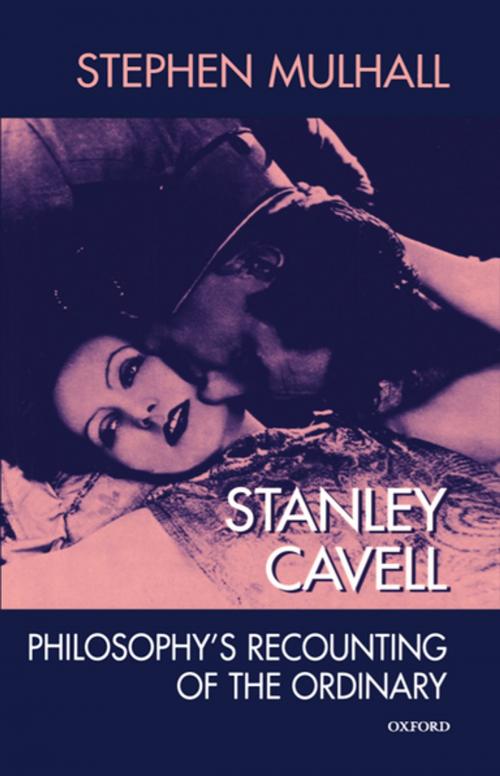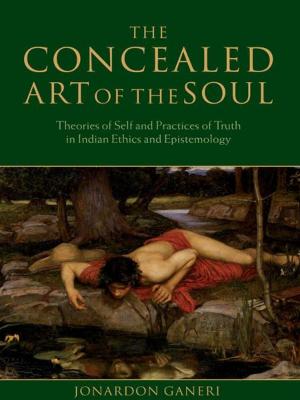Stanley Cavell
Philosophy's Recounting of the Ordinary
Nonfiction, Religion & Spirituality, Philosophy, Aesthetics, Fiction & Literature, Literary Theory & Criticism| Author: | Stephen Mulhall | ISBN: | 9780191036972 |
| Publisher: | Clarendon Press | Publication: | January 7, 1999 |
| Imprint: | Clarendon Press | Language: | English |
| Author: | Stephen Mulhall |
| ISBN: | 9780191036972 |
| Publisher: | Clarendon Press |
| Publication: | January 7, 1999 |
| Imprint: | Clarendon Press |
| Language: | English |
Stephen Mulhall presents the first full-length philosophical study of the work of Stanley Cavell, best known for his highly influential contributions to the fields of film studies, Shakespearian literary criticism, and the confluence of psychoanalysis and literary theory. It is not properly appreciated that Cavell's project originated in his interpretation of Austin's and Wittgenstein's philosophical interest in the criteria governing ordinary language, and is given unity by an abiding concern with the nature and the varying cultural manifestations of the sceptical impulse in modernity. This book elucidates the essentially philosophical roots and trajectory of Cavell's work, traces its links with Romanticism and its recent turn towards a species of moral pefectionism associated with Thoreau and Emerson, and concludes with an assessment of its relations to liberal-democratic political theory, Christian religious thought, and feminist literary studies. It will be of interest to anyone concerned with the relationships between Anglo-American and Continental philosophy, and between philosophy and other disciplines in the humanities. 'an excellent presentation and discussion of [Cavell's] thought . . . very timely' Political Studies 'Learning to read Mulhall is both a suitable and a worthy first step to learning to read Cavell' British Journal of Aesthetics 'there can be no doubt as to the depth of Mulhall's knowledge of Cavell's writings or to his ability as an advocate. [The book] is also very well written. Mulhall's prose is capable of registering the fine grain in a subtle and elusive thinker and, while more conventional than Cavell's, is no less supple or eloquent.' Times Literary Supplement '[Mulhall's] explication is careful enough to explain the importance of Cavell's work, clarify the subtleties of Cavell's ideas, provide a complete overview of Cavell's thought, and show the coherence in Cavell's diverse writings . . .invaluable' Harvard Review
Stephen Mulhall presents the first full-length philosophical study of the work of Stanley Cavell, best known for his highly influential contributions to the fields of film studies, Shakespearian literary criticism, and the confluence of psychoanalysis and literary theory. It is not properly appreciated that Cavell's project originated in his interpretation of Austin's and Wittgenstein's philosophical interest in the criteria governing ordinary language, and is given unity by an abiding concern with the nature and the varying cultural manifestations of the sceptical impulse in modernity. This book elucidates the essentially philosophical roots and trajectory of Cavell's work, traces its links with Romanticism and its recent turn towards a species of moral pefectionism associated with Thoreau and Emerson, and concludes with an assessment of its relations to liberal-democratic political theory, Christian religious thought, and feminist literary studies. It will be of interest to anyone concerned with the relationships between Anglo-American and Continental philosophy, and between philosophy and other disciplines in the humanities. 'an excellent presentation and discussion of [Cavell's] thought . . . very timely' Political Studies 'Learning to read Mulhall is both a suitable and a worthy first step to learning to read Cavell' British Journal of Aesthetics 'there can be no doubt as to the depth of Mulhall's knowledge of Cavell's writings or to his ability as an advocate. [The book] is also very well written. Mulhall's prose is capable of registering the fine grain in a subtle and elusive thinker and, while more conventional than Cavell's, is no less supple or eloquent.' Times Literary Supplement '[Mulhall's] explication is careful enough to explain the importance of Cavell's work, clarify the subtleties of Cavell's ideas, provide a complete overview of Cavell's thought, and show the coherence in Cavell's diverse writings . . .invaluable' Harvard Review















